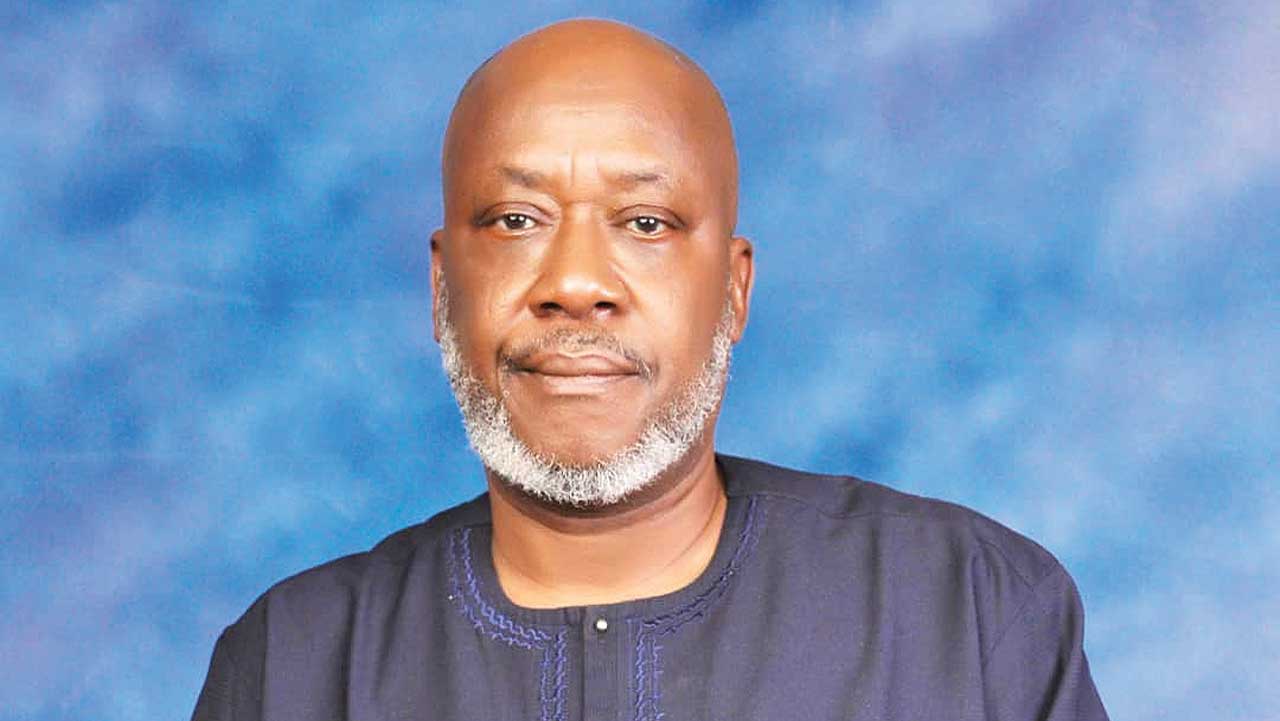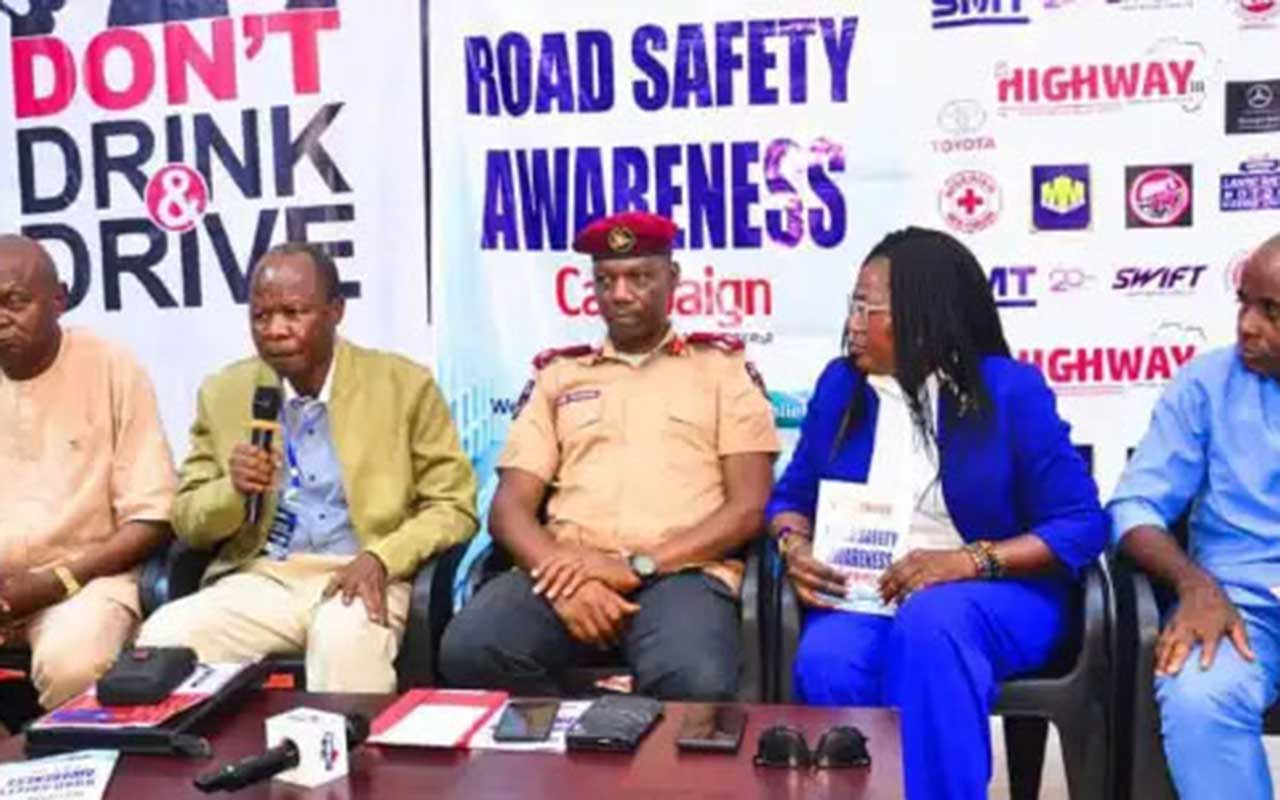
The recurrence of accidents involving trucks and articulated vehicles in Lagos and Ogun states has raised questions on the effectiveness of government agencies charged with the responsibilities of certifying these vehicles and licensing drivers, BERTRAM NWANNEKANMA reports.
When on December 14, 2021, the Lagos State government announced that beginning from January 1, 2022, no vehicle within its borders would be issued a roadworthiness certificate without physical inspection, many were overjoyed that the move would address the incessant breakdown of articulated vehicles and trucks on roads.
The then State Commissioner for Transportation, Dr Frederic Oladeinde, who spoke during a stakeholders’ meeting at the Vehicle Inspection Service (VIS), Headquarters in the Ojodu Berger part of the state said that going forward, motorists must present their vehicles for physical inspection at designated computerised vehicle inspection centres across the state, before being issued a roadworthiness certificate.
According to him, this is to further strengthen the safety of the roads, and that all vehicles plying Lagos roads are road-worthy.
But two years later, that does not seem to be the case, as road crashes involving articulated vehicles and trucks have assumed the notoriety of the famous One Week One Trouble novel, written in 1972 for young adults/children, by Nigerian writer, Anezi Okoro.
Sometimes, the breakdown happens more often, and in many cases lives are lost, leaving grievous damage to the road infrastructure.
Regrettably, even from mere physical observation, most of these vehicles are not fit for use, yet they are still allowed to ply the roads by agencies of government, which should have certified them and licensed their drivers.
Some of these agencies like the Federal Road Safety Corps (FRSC), Vehicles Inspection Office (VIOs), Lagos State Traffic Management Authority (LASTMA), and Ogun State Traffic Compliance and Enforcement Corps (TRACE), only play catch up in mitigating impacts of the crashes rather than preventing such from happening, by performing their roles effectively and efficiently.
Many residents have accused these agencies of focusing on private vehicles for pecuniary gains, rather than the poorly maintained articulated vehicles.
In the last 10 months, 349 trucks and articulated vehicles have been involved in road accidents in Ogun State, while it is occurring twice a week in Lagos State.
For instance, Officials of LASTMA and the Lagos State Fire and Rescue Service (LSFRS) on October 6, averted what could have been another major fire disaster around Synagogue Church of All Nations, Oju-Odo area inward Ikotun, when a fully loaded tanker fell.
Traffic officer, Demola Muibi (Zone 7), who led the response team said that the tanker that was fully loaded with petroleum product got hooked and blocked the entire Road inward Ikotun from the church.
He disclosed further that the team arrived at the scene at about 6:00a.m, and rallied other major emergency responders, including the Lagos State Fire and Rescue Services immediately.
“We managed the situation in a way that ensured that miscreants and hoodlums did not tamper with the fuel before the arrival of Policemen from Ikotun Police Division,” Muibi said.
A day later, another fire disaster was averted after a tanker that was fully loaded with Premium Motor Spirit (PMS) fell on the road and spilled its content, at Ajayi Junction, along Oke-Ira Road, by Excellence Hotel, Ogba, Ikeja, towards residential buildings.
This happened a week after three persons narrowly escaped death following an accident involving a diesel tanker (which fell on Otedola Bridge, inward Berger, near Capital Oil, along the Lagos-Ibadan Expressway, spilling its content on the road, and causing a terrible gridlock) and a Hyundai bus marked IKD 415 BU.
The Director of Public Affairs and Enlightenment Department of LASTMA, Mr. Adebayo Taofiq, said that preliminary investigation revealed that the tanker, which came from old Toll-Gate was heading towards Mowe-Ibafo when it overturned near Capital Oil inwards Berger on the Lagos-Ibadan Expressway.
Also, on January 29, a container-laden truck fell off the Ojuelegbabridge and landed on a commercial bus killing all its occupants.
According to an eyewitness, the tragedy happened as the truck driver attempted to block the bus from overtaking his vehicle.
Again, on Friday, March 10, a 40ft container fell off a trailer on the Ojuelegba Bridge around the National Stadium, while two other similar incidents were reported in the Ikeja and Mile 12 areas of the state.
As a result of the rising number of accidents, on Wednesday, April 19, LASTMA said that it had formed a task force comprising operatives of the FRSC to address the incessant truck crashes on Ojuelegba Bridge, and other road accidents in the state. Eight months later, the impact of the task force is yet to be felt.
As concerned Nigerians continue to lament the killing and maiming spree at the behest of the truck drivers, the Lagos State government, which has failed to enforce its laws as it concerns the movement of articulated vehicles, is insisting that a lot is being done to ensure that every area of its transport sector is covered with minimum safety standards.
Specifically, the government said that it is engaging stakeholders within the truck and trailer sub-sector by creating awareness about minimum safety standards on the state’s roads.
In what looks like an attempt to absolve the state of complicity in the rising number of malfunctioning trucks plying its roads, the Deputy Director Public Affairs Office, Lagos State Ministry of Transportation (the coordinating ministry of VIO and LASTMA), Bolanle Ogunlola, said most of the trucks do not come from the state.
Ogunlola, who could not give details of the certified number of trucks and articulated vehicles within her jurisdiction, added that this was the reason that the state introduced no vehicle inspection and no roadworthiness certificate in January 2021.
“Most times, we don’t have a particular truck park or garage where we can trace them to; where we can carry out our minimum safety in the state. So, what we have been doing is continuous awareness creation.
“We don’t say they shouldn’t move within the state, but they should please keep to our minimum safety standards, that is what we have been doing, and that is what we can do for now. We can’t say that they should not come to the state because they have valid roadworthiness from their states, and at the same time, we cannot allow them to kill our people in Lagos state because of their recklessness.
“So, if we can accommodate them in our truck parks, then we can as well conduct our minimum safety tests to ensure standards. I keep on saying minimum because if we want to go on total safety standards, none of the trucks that move on Lagos roads will pass the test. So, it is just the minimum standard like checking to see if their shocks, wipers, headlamps, brakes are all working very well,” she said.
Ogunlola added: “Since the beginning of Governor Babajide Sanwo-Olu’s second term, we have engaged them within this short period like six to seven times. We have invited those who operate in Lagos to the ministry. Like, as I said, most of them come from outside of the state, which means they belong to their state unions.
“Nobody is happy at the rate at which they are killing our people, and we can’t fold our arms and look at them. The truck barriers that we mounted on Ojuelegba and the Long bridges in Surulere have been broken many times in their bid to have easy access to those bridges. We would continue to talk, engage them, and make sure that they are on the government side to ensure the safety of lives and property of Lagos residents,” she said.
For the Lagos State Sector Commander of the FRSC, Babatunde Farinloye, there is no going back in ensuring that only road-worthy vehicles ply the roads, including those involved in wet and dry cargo haulage.
Farinloye explained that several safety-focused programmes have been put in place in concert with government agencies, including the Nigerian Port Authority (NPA) to drive home the point.
He added that the kind of understanding with NPA is that trained FRSC officials are supposed to check all these things and ensure that vehicles that load goods from the ports are road-worthy.
“We do have inter-agency meetings. We synergise not only with road safety, but LASTMA, LASEMA, and other sister agencies that are working to ensure that people are not caught in the web of road crashes. ”
He said: “We check to ensure that trailers and trucks are fit for movement before they can be allowed to load. We ensure that the safety measures that we put in place cover the driver, the vehicle, and other users. We always teach them how to share the road with others, considering others, not just driving selfishly and intimidating other road users. When many people see all these tankers and containerised trucks, they see them as hired killers because anything can happen.
“We also ensure that we check vehicles before they move, and also ensure that those behind the wheels and others involved in the operations undergo sobriety tests and ensure that anyone that fails that test will be subject to further psychological evaluation, and we apply the cumulative penalty points as enshrined in the Highway Code.
“Anyone that has violated traffic laws that is above the minimum 21 points will be sanctioned, meaning that person will not be allowed to drive again. We will suspend him or withdraw the licence.”
Speaking on the numbers of perpetrators so far caught, Farinloye said from January to date, the agency has arrested 417 people for driving under the influence of alcohol in Lagos State.
According to him, the issue of driving under the influence has become a social norm, adding that many people see alcoholic beverages as a normal way of life.
Farinloye described as erroneous the assumption that the consumption of alcoholic beverages can energise drivers.
According to him, anyone that takes alcohol is susceptible to microsleep.
He said: “Microsleep is bad for driving because you assume that you are thinking, meanwhile you are dreaming and it can result in crashes. So, we want to discourage people from the use of psychotic drugs, alcohol, and anything that can make them tipsy. We want to discourage them from taking it while driving.”
Shedding light on the situation within his domain, the Ogun Sector Commander of the FRSC, Anthony Uga, said that in the last 10 months, 349 trucks and articulated vehicles were involved in road accidents in the state.
“Between January and September 2023, there was a marginal increase over the 347 cases of trucks and articulated vehicle crashes in the state during the same period in 2022,” Uga said.
He called on truck operators in the state to prioritise the safety of their trucks and ensure that drivers exhibit a high level of professionalism in their chosen careers.
Uga urged drivers to resist the temptation to speed beyond stipulated limits, especially on the Lagos-Ibadan and Abeokuta-Sagamu expressways.
“The FRSC is committed to sustaining its prompt response to the removal of broken trucks and other vehicles along the Lagos–Ibadan and other expressways in the state.
“Most cases of tyre burst along the Abeokuta-Sagamu Expressway are induced by excessive speed, which results in injuries, permanent disabilities, and loss of lives,” he said.
The FRSC official said the Ogun Command had commenced a joint sensitisation against illicit drugs and alcohol abuse with the National Drug Law Enforcement Agency (NDLEA).
He called on transport union leaders to continually discourage their members from taking alcohol before driving.
Uga called on passengers to be vigilant by cautioning speeding drivers and discouraging overloading by drivers.
For the Ogun State Commissioner for Transportation, Mr. Gbenga Dairo, all stakeholders need to be mindful of their safety and that of others while on the roads.
He appealed to transport unions to take them seriously, conscientising their members against reckless conduct on the road, if they and other road users must return home to meet their loved ones.
For the Road Transport Employers Association of Nigeria (RTEAN), it will spare no effort in impressing on its members the need to make roads safe for all users .
A chieftain of the union, Mr Mukaila Mustapha, said that the union routinely advises its members to drive cautiously, and against constituting a menace to other road users.
While stressing the compelling need for them to obey traffic rules and regulations, he, however, informed that cases of overloading, failure to use seat belts, especially by drivers and front seat passengers, as well as drivers’ licence violations, etc., have reduced among these categories of commercial vehicles.






